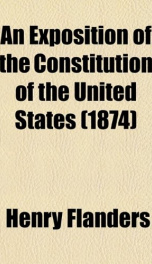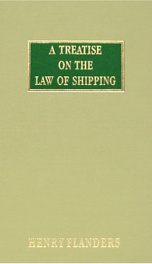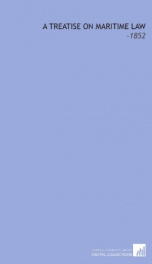an exposition of the constitution of the united states

Purchase of this book includes free trial access to www.million-books.com where you can read more than a million books for free. This is an OCR edition with typos. Excerpt from book: AH EXPOSITION OF THE CONSTITUTION. ITS ORIGIN. The Union of the Colonies. 1'. The impolitic course of Great Britain towards her North American colonies led to that correspondence, and, finally, to that union between them, which has proved, in large measure, the source of their power and prosperity. Accustomed, however, anterior to the Revolution, to a separate, independent existence, each colony having its distinct government, they still maintained that separate political existence, notwithstanding they united their counsels and resources for the common defence and general welfare. The Stamp-act Congress. 2. The attempt of England to derive a revenue from the colonies by means of a tax on stamps, led amajority, namely, nine of the colonial assemblies, to send delegates to a Congress which assembled at New York, in October, 1765, to consult together, and make a common representation to implore relief. The determined attitude of the colonies on this occasion, and their resolute denial and resistance to the assumed right of taxation, induced Parliament to repeal the obnoxious act. 3. But little more than a year elapsed, how'ever, before the project of taxation was again revived, and early in the year 1767 Parliament passed another act, with the avowed object of deriving a revenue from America. This measure re-opened the fountain of discontent and controversy, and led to that resistance on the one hand, and those attempts at coercion on the other, which at last resulted in open war, and the dismemberment of the British Empire. The Continental Congress. 4. On the 5th of September, 1774, delegates from all the colonies, except Georgia, assembled at Philadelphia to deliberate upon the state of public afiairs, and devise and recommend measures of relief. The met...
Info about the book
Author:
Series:
Unknown
ISBN:
1584770147
Rating:
4.5/5 (2)Your rating:
0/5
Languge:
English
Users who have this book
Users who want this book
What readers are saying
What do you think? Write your own comment on this book!
write a commentGenre
if you like an exposition of the constitution of the united states try:
Do you want to read a book that interests you? It’s EASY!
Create an account and send a request for reading to other users on the Webpage of the book!





